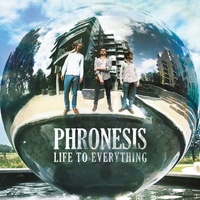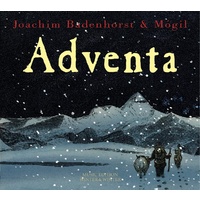Wayne Shorter Quartet - Adam’s Apple To Super Nova Revisited
Two Classic Blue Note titles on one CD
2023 release
In the three and a half years which separate the recording of the Blue Note albums Adam's Apple, in February 1966, and Super Nova, in August and September 1969, jazz went through a paradigm shift going on profound identity trauma. In 1966, though it was already past peak popularity, hard bop was still an important soundtrack among street people and cultural sophisticates alike. But three years later, acid rock had more or less replaced it. Jazz musicians, reeling from the reduction in their earning power, were looking, with various degrees of desperation, for ways to ride rock's slipstream and regain a sizeable audience. Wayne Shorter, though far too cool and self-assured ever to be desperate, was among them—and these two magnificent albums are the evidence.
Adam's Apple is foursquare in mid-1960s' progressive hard-bop territory. Shorter's Speak No Evil (Blue Note, 1966) may generally be regarded as his hard-bop magnum opus, but Adam's Apple comes close. Though under-appreciated, it is well celebrated compared to the lesser known Super Nova. On that album, Shorter ventured his first own-name foray into the broad church that would soon become known as "fusion." But Super Nova stands light years apart from the insipid dreck with which "fusion" would shortly become associated. It is an historic outing, and the release of the audio-upgraded Adam's Apple To Super Nova Revisited, two months after Shorter left us in March 2023, is a timely opportunity to rediscover it.
Let us take a brief look at each album in turn...
Adam's Apple: Shorter was never a bar-walking tenor player, but he gets close on the opening title track here, which parallels his one-time Jazz Messengers colleague Lee Morgan's hit "The Sidewinder." Pianist Herbie Hancock, Shorter's contemporary colleague in Miles Davis' band, can get as funky as you like—as he had already demonstrated on guitarist Grant Green's gospel infused Feelin' The Spirit (Blue Note, 1963), not to mention his own "Watermelon Man" in 1962—and he locks tight into Shorter's groove. In a complete change of mood, the track is followed by Jimmy Rowles' introspective "502 Blues (Drinkin' And Drivin')," the only tune not written by Shorter. The samba-esque "El Gaucho" follows, and then the debut recording of Shorter's glorious "Footprints." The gentle, balladic "Teru" precedes the closer, "Chief Crazy Horse," a partial return to the opening track's intensity. Bassist Reggie Workman and drummer Joe Chambers complete the quartet's lineup.
Super Nova: At this point, things get a little tangled up with Miles Davis. Three of Shorter's pieces on Super Nova were first recorded by Davis, with Shorter in the band, in summer 1967, but were shelved until 1976, when they became side one of the Davis LP Water Babies (Columbia). The tunes are "Water Babies," "Capricorn" and "Sweet Pea." Fast forward to autumn 1969 and the sessions for Super Nova. By now, Shorter was wondering whether the Davis recordings would ever get released, so he recorded singular versions of each piece for his own album. The personnel is electric-Davis going on Weather Report. There is no pianist (acoustic or otherwise) and instead three guitarists: John McLaughlin, Sonny Sharrock and Walter Booker. There are three drummers/percussionists, too: Jack DeJohnette, Chick Corea and Airto Moreira. The bassist is Miroslav Vitous. Shorter plays soprano throughout.
The album's only cover, of Antonio Carlos Jobim's "Dindi," at 9:36 the longest track, is a vivid example of how Super Nova tapped into the post acid-rock, countercultural late-1960s zeitgeist. There is a serene section in the middle of the track focusing on Walter Booker's acoustic guitar and Maria Booker's vocal, but this is bookended by sections in which it sounds as though the rest of the band has travelled deep into the Brazilian rain forest and ingested industrial quantities of shrooms. Maybe they metaphorically had and maybe they had not. There is no mistaking the vibe, however, nor the coincidental but appropriate replacement of the alcohol in 1966's "502 Blues (Drinkin' And Drivin')" with pscychedelics in 1969, be this exchange of recreational intoxicants actual or imagined.
Adam's Apple To Super Nova Revisited: Regular readers of these pages will be familiar with Michael Brändli, whose sound restoration and mastering skills take Ezz-thetics' carefully curated reissues further into exalted territory. Once again, Brändli has woven his magic and for the listener the result is almost like hearing the material for the first time.
Chris May - Allaboutjazz
(752156115328)
| SKU | 752156115328 |
| Barcode # | 752156115328 |
| Brand | ezz-thetics / Hat Hut Records |
Be The First To Review This Product!
Help other Birdland Records users shop smarter by writing reviews for products you have purchased.










